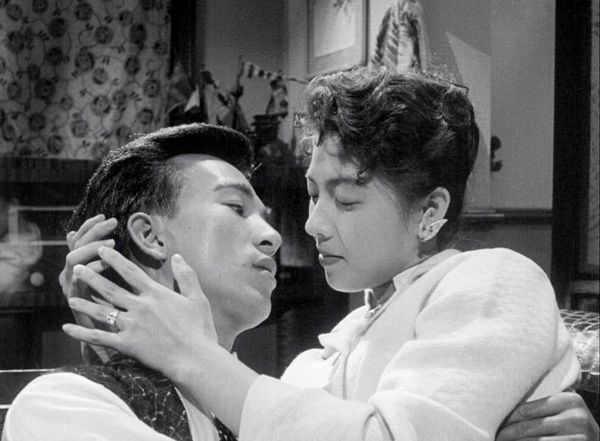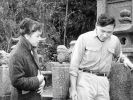Eye For Film >> Movies >> The Husband’s Secret (1960) Film Review
The Husband’s Secret
Reviewed by: Jennie Kermode

One of few surviving films from the late 20th Century Golden Age of Hokkien language cinema, and once believed to be lost, Lin Tuan-Chiu's melodramatic but socially challenging romance was digitally restored over four months in 2017, by the Multimedia Centre at Tainan National University of the Arts, and selected to screen at the Taiwan Film Festival Edinburgh in 2020. Not all of it was able to be recovered, so towards the end a section of the film is replaced by the raw script, and in places the image is badly distressed. This will limit its appeal to patient audiences and to those interested in it as a historic artefact. For the most part, however, it's in remarkably good shape, and there's plenty to appreciate about Lin's style with its fusion of Japanese and European elements in telling a strongly Chinese-influenced story.
This story revolves around well-to-do middle class couple Tshiu-bi (Wu Li-fen) and Siu-gi (Chang Pan-yang), whose one clear disappointment in life is their inability to have a child. Their comfortable life is contrasted with that of Le-hun (Chang Mei-yao), a single mother who is living hand to mouth and even has to sell her coat, in the middle of winter, so that she can afford to feed her four year old son. Le-hun and Tshiu-bi are old friends and when the latter learns of the former's plight, she becomes determined to help her, even inviting her to stay in her own home. What she doesn't know is that before she was married to Siu-gi, he was in love with Le-hun, the two forced apart by tragedy. Although Le-hun desperately wants to avoid anything further happening, Siu-gi is emotionally overwhelmed and, though Tshiu-bi has no idea what's going on, her marriage is plunged into crisis.

It was a bold move, back in 1960, for Lin to take on some of these issues. Although they're often rather delicately phrased - at one point Le-hun works in a nightclub and feels ashamed at being made to wear glamorous clothes, when it's clear that what's really being addressed is her being pimped out - the audience is encouraged to feel sympathy for a woman who would traditionally have been condemned. The worst she gets here is a disapproving tone from the narrator. For the most part she is presented as a victim, seduced at an early age by an abusive man (once Siu-gi's rival) and never able to get back on her feet as a result of society's prejudice against her. We see her denied basic opportunities and subjected to sexual assault by men who imply that she is beneath ordinary consideration. Her closeness to Tshiu-bi forces viewers to accept her as a member of the same class who has been unlucky, rather than writing her off as something other.
Important those these themes are, they're presented in a manner so wildly over the top that in places it verges on comedy. The English translation does it no favours, with some seriously clunky dialogue, but I'm reliably informed that it's almost as bad in the original. This is more believable because towards the end the decisions made by key characters - albeit under the influence of their elders, and perhaps with a flavour of satire - become difficult to believe. There is a focus on saving face over and above anyone's happiness which speaks to the cultural priorities of the time but really just seems to pour more cruelty into already unhappy lives, despite the fact that, prior to this, all f the characters have shown a willingness to fight for the things that are important to them. The story Lin wants to tell (adapted from a Japanese novel) is at odds with the story that might emerge naturally from what the actors have shown us, the story that wants to be told.
Whilst, out of context, this comes across as a failing, it reflects interestingly on a conflicted era when Taiwan - a country always caught between multiple, opposing cultural traditions - found its established more bumping up against a hunger for modernity. The emergence of feminism, with so much yet to be addressed, saw women liberated in some areas only to face new trials in others. A developing focus on economic opportunity saw those already on the margins pushed even further into poverty, and new criminal opportunities emerged. The Husband's Secret draws on this unease and makes what is then, in its way, a bold statement, if only by asserting that happiness ought to matter.
Reviewed on: 20 Sep 2020














